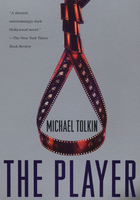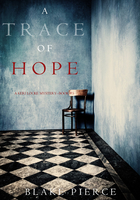There is no privacy through a mosquito net. Next morning, as Fen and I sat at my table with a map of the river we'd sketched out together, Nell rolled onto her back and slowly sat up. She laid her cheek on a knee and didn't move again for a long time.
'I think she's worse today,' I said. A malarial fever came on hard with a headache that felt like someone was taking an axe to the base of your skull.
'Nellie. Up and at 'em,' he said without turning. 'We've got tribes to meet today.' He said to me, quietly, 'The trick is to outrun it. Stop moving and you're buggered.'
'In my experience it doesn't always give you that option.' When my fever came on, my body felt filled with lead, and I was lucky if I could reach a chamber pot. I fetched the medicine box.
'I'm going to the loo,' he said to her through the netting. 'Please don't slow us down.'
If she responded I couldn't hear it. Her cheek remained pressed to her knee. Fen disappeared down the pole.
She was not in any state of undress-she wore the same shirt and pants from the night before-yet I felt reluctant to greet her. I wanted to give her the illusion of privacy. I busied myself with turning some yams in the ash fire and doing the washing up at the back of the house, though there were only two plates and two cups and they needed little more than a wipe-down.
'Did you sleep at all?'
I swung round. She was seated at the table.
'A bit,' I said.
'Liar.'
Her cheeks were flushed in wide circles like a doll's, but her lips were colorless, her eyes glazed yellow. I tapped out four aspirin into my hand. 'Too many?'
She leaned in from across the table, peering closely at the pills. 'Perfect.'
'You need specs.'
'I stepped on them a few months ago.'
'Bankson! A fellow's here,' Fen called from below. 'I can't make out what he wants.'
'I'll be right down.' I brought Nell water for her pills and went to the smaller trunk in my office. I swept my hand back and forth across its gritty bottom until I felt the small case in a corner. I hadn't opened it since my mother gave it to me before I sailed.
'I don't know how they'll do,' I said, handing it to her.
She snapped it open. They had a simple wire frame, thinner than I remembered. Pewter-colored. A near perfect match to her eyes.
'Don't you need them?'
'They were Martin's.' A policeman had come to the door with them several months after his death. They'd been freshly polished, and a tag on a string had been knotted to the bridge.
She seemed to understand all that, and lifted them tenderly from their dingy case to put them on.
'Oh,' she said, moving toward the window. 'They're out on the water with their nets.' She turned back around to look at me, still holding the frames to her face with two hands as if they would not stay there by themselves. 'And you could stand a shave, Mr. Bankson.'
'They work then?'
'I think I may be more myopic than Martin, but we're close.'
It was lovely, hearing Martin spoken of in the present tense. 'Keep them.'
'I couldn't.'
'I've plenty of his things.' It wasn't true. There was a sweater or two in my mother's wardrobe, but that was all. My father had ordered the servants to give it all to a charity shop as soon as his trunks had arrived from London. 'Happy Christmas,' I said.
She smiled, remembering this. 'I'll take good care of them.'
They were big for her small marsupial face, but suited her somehow. You get hounded daily in the field for your possessions, and it felt good to give something away that hadn't been asked for.
'Bankson, help me out here!'
I went down to Fen, who was face-to-face with one of my informants, Ragwa, who was meant to take me to a naming ceremony in his sister's hamlet this afternoon. Ragwa had taken up the Kiona intimidation position, arms bowed and chin stretched out over his feet, and Fen had done nothing but encourage it by taking up his own, either in mockery or for real, I couldn't tell which.
'Ask him about the sacred object,' Fen whispered.
But Ragwa cut me off and said his wife had gone into labor and he couldn't accompany me today. After that he rushed off.
'They all like that?'
'He's worried about his wife. The baby's early.' A few weeks ago Ragwa had grabbed my hand and pressed it to his wife's belly. I felt the baby roll beneath her taut skin. I had never felt that before, never known, honestly, that such a thing happened. It echoed against my palm for a long time after. It was like putting my hand to the surface of the ocean and being able to feel a fish beneath. Ragwa had laughed and laughed at the expression on my face.
'Can I help with the birth?' Nell was standing in the doorway.
'I thought we were leaving,' Fen said, not noticing her spectacles.
'But if the baby's premature.'
'They've been having babies for a long time without you, Nell.'
'I have some experience,' she said to me.
'It's very kind. But there's a taboo on childless women witnessing a birth.'
She nodded. 'The Anapa were the same,' she said, but her voice had lost some strength, and I felt I'd said the wrong thing.
'And we do need to see if we can find something, Nellie,' Fen said more gently than I'd ever heard him speak.
I gave them a tour of the village, and an hour later we set off to the Ngoni. I had made a case for this tribe: They were skilled warriors, which would appeal to Fen, and renowned healers, which I thought might interest-and help-Nell. But the real reason I'd chosen the Ngoni was that they were less than an hour's boat ride from my village.
We were hungry as soon as we got on the water. I had packed enough food for several days if need be. We ate with our hands, scooping our fingers into still warm baked yams and the cool flesh of a jackfruit. I made sure the food made equal rounds up to Nell in the bow, and that she was taking it. After she ate she seemed to revive a bit, looking ahead and turning back toward me, her hair rising behind her, with questions about adzes, kina shells, and creation stories.
The Ngoni were just beyond the sandbar I always had to watch out for in the dark. The hamlet's houses were arranged in groups of three, set back fifteen feet from the steep riverbank and, like all houses in the region, raised on piles to keep out vermin and the river when it rose.
'No beach?' Nell said.
I hadn't thought about that. It was true. The land dropped into the water abruptly.
'It's a bit gloomy, isn't it?' Fen said. 'Not much sunlight.'
At the sound of the approaching engine, a few men had gathered at the edge of their land.
'Let's keep going, Bankson,' Nell said. 'Let's not stop here.'
Next were the Yarapat, but Fen thought the houses hung too low to the ground. I tried to point out the rise in the land-the Yarapat were set on a high hill-but he'd been flooded once in the Admiralty Islands, so we passed them by as well.
They didn't like the looks of the next village, either.
'Weak art,' Nell said.
'What?'
'That face,' she said, meaning the enormous mask that hung over the entryway of the ceremonial house we could see from the water. 'It's crude. Not like what I've seen elsewhere.'
'We need art, Bankson,' Fen bellowed poshly from his seat in front of me. 'We need art and theatre and the ballet, if it's not too much bother.'
'Do you want to stop here?' Nell asked him.
'No.'
We were now four hours away from Nengai, and the sun was dropping fast, the way it does near the equator. We hadn't even got out of the boat yet. I knew of one more tribe, the Wokup, before my familiarity with the river in this direction ran out. The Wokup had a beach, tall houses, and good art.
When we reached them, I gunned the boat directly at the center of the beach, determined that I would not stop for any reservation they could cook up. Though I was concentrating on the shore beyond her, I felt Nell imitating the stubborn clench in my face. But I thought she'd been a fusspot about the other tribes and could find no humor in it.
No one came down to greet us at the sound of the boat. Then I heard a call, not a drum, and there were flickers of quick movement, a child's shriek, then nothing.
I had met a few Wokup. They were not ignorant of whites-no one on this part of the river was by now. Most tribes had a story of someone being put in jail or lured away by recruiters-blackbirders, they were called then-to the mines. I pulled the canoe up onto the shore and we sat in it, waiting, not wanting to cause more distress. A second call went up and a minute later three men came down to greet us. I could not see their backs, but the raised scars on their arms were longer, more like strands of hair or rays of the sun, than the crocodile hide designs of the Kiona. Save a few armbands, they were naked and took their positions in the sand. They knew, even if they had never seen it themselves, that whites had powers-steel blades, rifles, pistols, dynamite-that they did not possess. They knew this power could come on suddenly, with no warning. But we are not afraid, they said with their spread legs, arched backs, and hard gazes.
The one in the middle recognized me from trading at Timbunke and spoke to me in Kiona fragments. From what I could piece together, their village was expecting a raid from a swamp tribe. Swamp tribes were low in the pecking order of the Sepik, weak and impoverished, but they were unpredictable. I explained that my friends were interested in living with them and understanding their ways, that they had many gifts-but he waved me off before I could finish. It was a bad time, he said many times. There was the raid, and there was something else I couldn't understand. A bad time. We were welcome to spend the night-he could not guarantee us a safe trip home in the dark if their enemies were en route-but we would have to leave in the morning.
'I don't know how much of this is true,' I said to Nell and Fen after I translated everything the chief had said. 'He could be waiting for some incentives.'
'Tell him we can supply him with ten years' worth of salt and matches for the whole tribe,' Fen said.
'We can't lie.'
'We still have loads of the stuff in Port Moresby.'
To verify this with Nell would insult him, yet it seemed impossible that after a year and a half they would still have that much to offer.
'We are not light travelers,' she said.
I began to communicate this to the chief but he raised his hand before I could finish, insulted. He explained that they lacked nothing and needed nothing from us, but for our safety and the safety of his people, he would let us stay the night.
We followed the three Wokup up to the village center. A boy was sent up the ladder of a house and within minutes a mother and five children climbed down. Without looking at us they made their way to a house three doors away. The children let out small yelps once they were inside. The adults hushed them angrily.
The chief indicated that we were to go up. Fen went first with our bag, then reached down to help me with the engine. It was a small house. I suspected that it must be the second or third wife of the chief, whose house next door was much larger. We watched him climb up his ladder and disappear.
We were in near darkness. All the openings were covered with bark cloth dyed black. The village was silent. We could nearly hear the sweat coming out of our pores.
'Crikey. They could have bloody well offered us some food,' Fen said.
Nell hushed him.
He fished around in his duffel. I thought he was going to produce some extra tins he'd stashed away, but he pulled out a revolver.
I felt my blood rushing, stinging.
'Put it away, Fen,' Nell said. 'We won't need it.'
'They seem serious. Did you see all those spears?'
Nell didn't say anything.
'The spears leaning against the house on the other side of the chief. You didn't see them?' He seemed quite giddy with this fact. 'Sharp. Maybe poisoned.'
'Fen. Stop it.' She was stern.
He slid the gun back in his bag. 'They aren't messing around.' He moved low and fast to the doorway and peered sideways through a crack in the bark cloth. 'I think we should sleep in rotations, Bankson.'
There wasn't going to be much sleeping, anyway. The house caught no breeze and the bugs were awful. We ate from our provisions, played a few hands of dummy bridge by the light of a candle, then chose our beds. The Wokup slept in covered hammocks, not in bags like the Kiona or on mats like the Baining. I took the one in the far corner. It looked to be about a foot and a half shorter than what I could fit into, so I told Fen I'd take the first shift. He motioned to the gun, but I left it in his duffel.
I rolled up the bark cloth a bit and sat in the doorway against a beam. A mist, torn in places, lay across the river now. Behind me Nell and Fen tried to get comfortable in their hammocks. 'It's like sleeping inside a teabag,' I heard him say. Nell laughed and said something I couldn't hear that made him laugh. It was the first time I had felt alone with them, and it hit me hard and low in the gut. They were here but they belonged to each other and they would go off again and leave me behind.
Outside the sounds of the jungle rose up. Croaks, thrashes, screeches. Whining, growling, splashing. Hums, thrums, and whirs. Every creature seemed on the move. On bad nights in Nengai I'd imagined they were all coming slowly for me.
I tried to focus on the immediate future, tomorrow, and not the great swath of time that stretched out perilously after that. I'd have to take them to Lake Tam. Another three hours upriver. Seven hours away from me. My visits, if I made them, would be planned and certainly less frequent. I'd have to stay the night, disrupt their routines. I was ashamed to feel such bald need for these near strangers, and as I sat there in the dark I trained my mind back to my work, though if there was a quicker way back to suicidal thoughts, I did not know it. But earlier in the day, I'd had another conversation with Nell about the Wai, and as we talked I had the idea that perhaps through this ceremony I could tell the story of the Kiona. I had hundreds of pages of notes, but I wasn't any closer to a full understanding of it. Once elaborate and in celebration of a boy's first homicide, the Wai ceremony was performed infrequently now, no longer to recognize a killing but in honor of any sort of young male's accomplishment: first fish caught, first boar speared, first canoe built. Many firsts in the past two years had passed unacknowledged, however, and though I was often promised another Wai soon, soon never seemed to come.
I shut my eyes and remembered the ceremony as I had witnessed it. It had been during my first month and I'd been sitting with the women-I was often put with the women in large gatherings, along with the children and the mentally ill. To my left was Tupani-Kwo, one of the oldest women of the village. I managed to ask her a few questions, but I hadn't understood many of her answers. It was chaotic. The father and uncles of the boy being celebrated came out first, in dirty tattered skirts and strings around their bellies like pregnant women wore. They hobbled along together as if they were sick or dying. The women came next, wearing male headdresses and necklaces made of homicidal ornaments and large orange penis gourds strapped around their genitals. They carried the men's lime boxes and pushed the notched lime sticks in and out to make a loud noise and to show off the swinging tassels which hung from the end of the sticks, each one representing a past murder. The women walked tall and proud, appearing to enjoy the role. The boy and a few of his friends ran to them with big walking sticks and the women put down their lime boxes, took the sticks, and beat the men until they ran away.
I crept quietly back to get my notebook and citronella candle. Fen and Nell were dark lumps, hanging in their hammocks. Back in my spot in the doorway, I wrote about my most recent conversation with Tupani-Kwo about that day. I was surprised by the energy I suddenly had for it. The thoughts came fast, and I caught them, stopping only once to sharpen my pencil with a penknife. I thought of Nell's euphoria and nearly laughed out loud. This little rush of words was the closest I'd come to any sort of elation in the field.
Behind me the stiff fibers of a hammock creaked and Nell came and sat beside me, her bare feet on the top rung of the ladder. She did have all ten toes.
'I can't sleep if someone else is working,' she said.
'Done.' I closed the notebook.
'No, please, continue. It's also soothing.'
'I was waiting for more words. I don't think they were coming.'
She laughed.
'What's funny?' I said.
'You keep reminding me of things.'
'Tell me.'
'It's just a story my father likes to repeat. I have no memory of it. He says at three or four I had a big tantrum and locked myself in my mother's closet. I tore down her dresses and kicked her shoes all around, and made a terrible amount of noise, then there was absolute silence for a long time. "Nellie?" my mother said. "Are you all right?" and apparently I said, "I've spit on your dresses and I've spit on your hats and now I'm waiting for more spit."'
I laughed. I could see her with a round red face and a wild thicket of hair.
'I promise that's the last Nell Stone childhood vignette I will bore you with.'
'Do you still amuse your parents?' It was something I couldn't imagine being able to do anymore.
She laughed. 'Not in the least.'
'Why not?'
'I wrote a book all about the sex lives of native children.'
'That is a bit less seemly than spitting on hats, isn't it?'
'A good bit less,' she said in my accent. She put on Martin's glasses. She'd been holding them in her hand. 'The reactions to this book have been out of proportion. I was glad to escape the country.'
'I'm sorry I haven't read it.'
'You have a pretty good excuse.'
'I should have had someone send it.'
'They haven't warmed to it in England,' she said. 'Now go get some sleep. I'll take this watch. Oh, look at the moon.'
It was the slightest paring, the rest of the unlit moon a faint aura behind it.
'"I saw the new moon, late yestereen, with the old moon in her arm,"' she said with a Scottish burr.
'"And I fear, I fear, my maister dear-"' I continued.
'"That we shall come to harm."'
'"They had na sail'd a league, a league,"' I said, thickening my own accent.
'"A league but barely three-"'
'"When the lift grew dark and the wind blew loud-"'
She joined me here, '"And gurly grew the sea."' I kept my eyes on the moon, but I heard the smile in her voice.
Americans could surprise you with the things they knew.
I'm not sure what we said after that, if it was a long time or a short time that went by before there was a snap and a thud behind us. We jumped up. Fen was on the ground in his hammock. I held the candle over him while Nell crouched down. His eyes were shut, and when she nudged him and asked him if he was all right, he said, 'It's always rough, this patch.' And then, 'Knock it with a shoe, yer git,' and rolled over.
'I think he's trying to open a bottle of beer.'
We had a good laugh and left him be. I made a little bed with my extra clothes in the corner below my hammock. I didn't think I'd actually sleep but I did, quite soundly, and they were packed up and waiting for me when I woke.
Nearly all the Wokup were on the beach to see us off. They yipped and hooted and the children flung themselves in the water.
'A lot stronger on goodbye than hello, aren't they?' Fen said.
'There never was a raid coming from the swamp,' I said.
'Probably not,' Nell said.
Fen asked to drive the boat so I slowed and we wobbily swapped places. He opened up the throttle and we were off-fast.
'Fen!' Nell screeched, but she was half laughing. She turned around to face us and her knees brushed my shins. 'I can't watch. Tell me when we're about to crash.' Her hair, no longer plaited, blew toward me. The fever and loose hair, dark brown with threads of copper and gold, had brought an illusion of great health to her face.
If the Tam weren't a good fit, they would go to Australia. This was my last chance to get it right. And I could tell she was skeptical. But Teket had been many times to the Tam to visit his cousin there, and even if everything he told me were only half true, I figured it should satisfy this pair of picky anthropologists. 'I should have brought you here straightaway.' I said, not entirely meaning to say it aloud. 'It was selfish of me.'
She smiled, and instructed Fen not to kill us before we got there.
After several hours I saw the tributary we needed to take. Fen turned us toward it, letting in a little water on the port side. It was a narrow stream of yellowish brown. The sun disappeared and the air was cool on our faces.
'Water's low,' Fen said.
'You're all right,' I said, scanning for glimpses of the bottom.
The rains hadn't come yet. The banks here rose high, walls of mud and coiling white roots. I watched carefully for the break Teket had told me about. He'd said it was soon after the turn. In a motorized boat it would come fast.
'Here.' I pointed right.
'Here? Where?'
'Right here.' We were nearly past it.
The boat lurched, then slid into a tiny dark canal between what Teket called kopi, bushes that looked like freshwater mangroves.
'You cannot be serious, Bankson,' Fen said.
'They're fens, aren't they?' Nell said. 'Fen among the fens.'
'This is a fen? Jesus, help us,' he said. The passage was wide enough for only one canoe. Branches scraped our arms and because we'd slowed down, insects came at us in clouds. 'You could get bloody lost in here.'
Teket had told me there was only one path through. 'Just follow the water.'
'Like I'm going to do anything else. Fuck, the bugs are thick.'
We motored through this close corridor a long time, their trust in me weakening by the minute. I wanted to tell them everything I'd heard about the Tam, but best to have them arrive discouraged.
'Sure you have enough petrol for this?' Fen asked.
And just then the passage opened up.
The lake was enormous, at least twelve miles across, the water jet black and ringed by bright green hills. Fen pulled up on the throttle to idle and we swayed there for a moment. Across the water was a long beach, and, mirroring it in the water twenty yards offshore, a bright white sandbar. Or what I thought was a sandbar, until all at once it lifted, broke apart, and thinned into the air.
'Osprey,' I said. 'White osprey.'
'Oh my, Bankson,' Nell said. 'This is glorious.'













